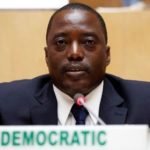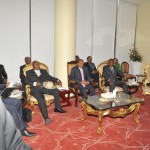Yesterday, regional Heads of State and several dignitaries called on the Burundi government to postpone elections in the civil-strife stricken country.
The proposal by the East African Community (EAC) comes in the wake of Burundian President Pierre Nkurunziza almost insisting that presidential elections in his country must be held on June 26.
The EAC is not the first regional body, organization or country to call for the postponement of these elections; the United States, the European Union, theInternational Conference on the Great Lakes Region (ICGLR) and the Catholic Church are some of the other parties that want the elections put off, for fear of persistent violence.
Most observers of the situation in Burundi have argued that it is very volatile, something that can lead to further bloodshed in the tiny central African country that has had a good share of turmoil since Independence.
In fact during the previous round of conflict that lasted about 10 years, it was the intervention of countries in the region that saved Burundi from plummeting into an orgy of bloodshed. They have again come in to salvage Burundi.
Already a lot of blood has been shed and that is why it is important for President Nkurunziza to heed the call by his EAC colleagues and other well-wishers.
Indeed, already the international Community seems worried of a possible eruption of Genocide, and has dispatched the UN Special Advisor/Envoy on the Prevention of Genocide Adama Dieng to engage with the authorities on the itchy matter of violence.
In that regard, first, before holding elections there must be a peaceful and conducive environment, which enables all people of voting age in Burundi to participate in the elections, and to choose a leader of their choice.
Second, government should try and reach out to the opposition to see how best to conduct a free and fair election, one that will not be contested, in a bid to avoid post-election violence.
Third, the government of Burundi should ensure that it repatriates all refugees, victims of the current violence that are strewn across the region, and also provide the necessary humanitarian needs of those vulnerable people like the elderly, children and women who stayed on in the country.
It is after such measures have been operationalized that the country can go to the polls.







